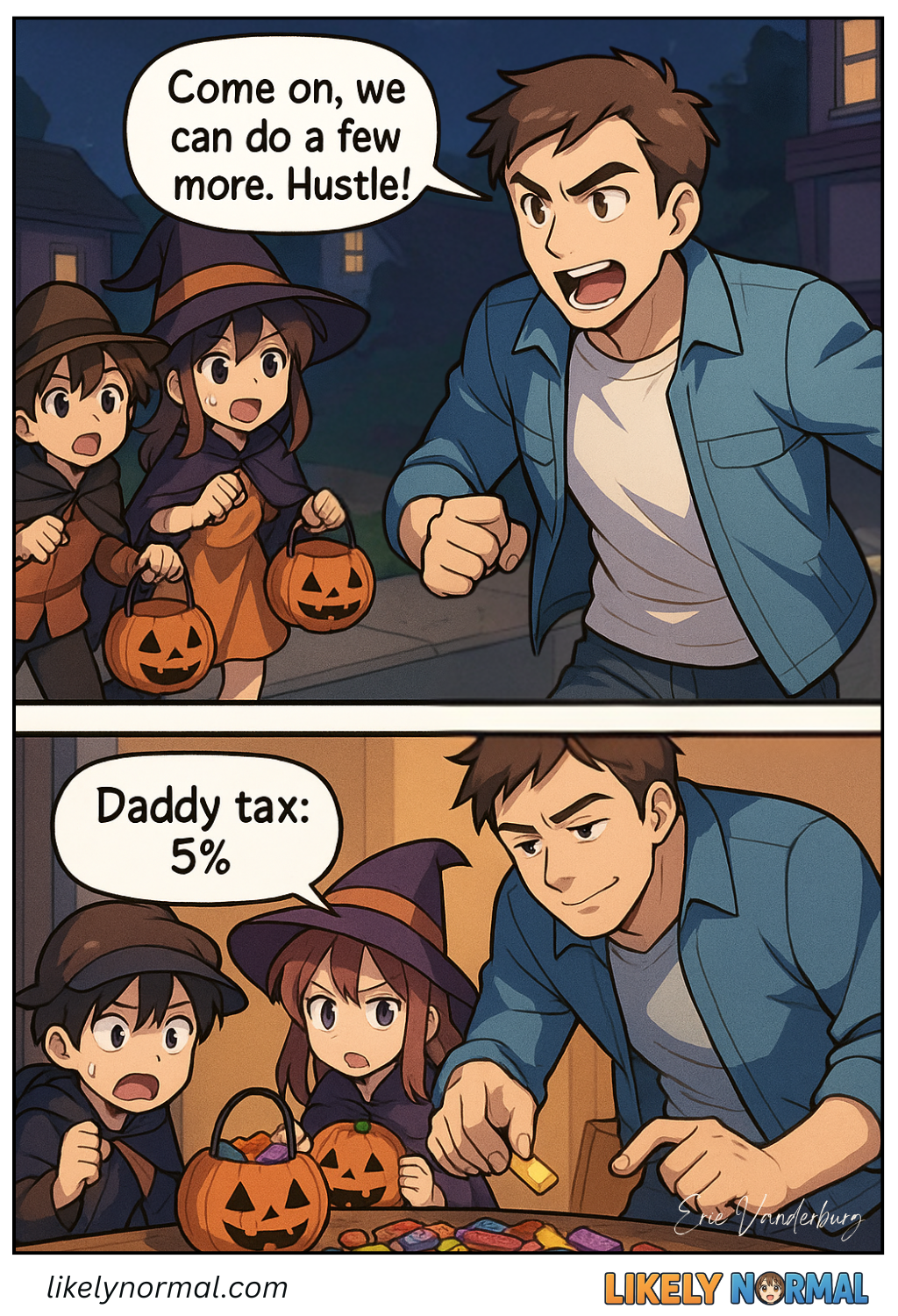Halloween Daddy Tax
Remember when Halloween meant unleashing sugar-crazed children into the neighborhood while parents enjoyed rare moments of peace or handed out candy together? Those simpler times have given way to the modern era of parental escort duty – and with it, the inevitable institution of the Daddy Tax. While mom hands out candy at home, dads escort their kids throughout the neighborhood. What began as innocent chaperoning has evolved into a complex candy redistribution system where parents exact their toll for services rendered. As we march our little fairies and superheroes door-to-door, we’re not just protecting them from traffic and overly enthusiastic fog machines – we’re conducting reconnaissance for the coming candy harvest.
The Daddy Tax operates on an honor system that’s about as honorable as a pirate dividing loot. Standard rates hover around 30% of the haul, with premium items like full-size candy bars subject to immediate confiscation “for inspection.” Parents have developed elaborate justifications for their sugary tithes – we’re “testing for poison” (fun-sized Snickers), “preventing cavities” (by eating the good chocolate ourselves), and “teaching sharing” (with very specific definitions of who does the sharing). Meanwhile, children have become miniature tax evaders, hiding Starburst in their pillowcases and burying Skittles at the bottom of their candy buckets like squirrels preparing for winter.
This new Halloween economy has created strange bedfellows. That dad who used to raid his kids’ candy after bedtime now loudly announces his intentions upfront. The mom who once turned a blind eye to missing Reese’s Cups now demands her cut at the bargaining table. Even grandparents get in on the action, charging “storage fees” for holding candy bags during bathroom breaks. The only uncontested truth? Nobody – and we mean nobody – is fighting over those toothbrushes and raisins some well-meaning neighbor insists on giving out. As we tuck our over-sugared children into bed and sort through our hard-earned parental taxes, we can’t help but wonder – who’s really tricking whom here?

Discussion ¬